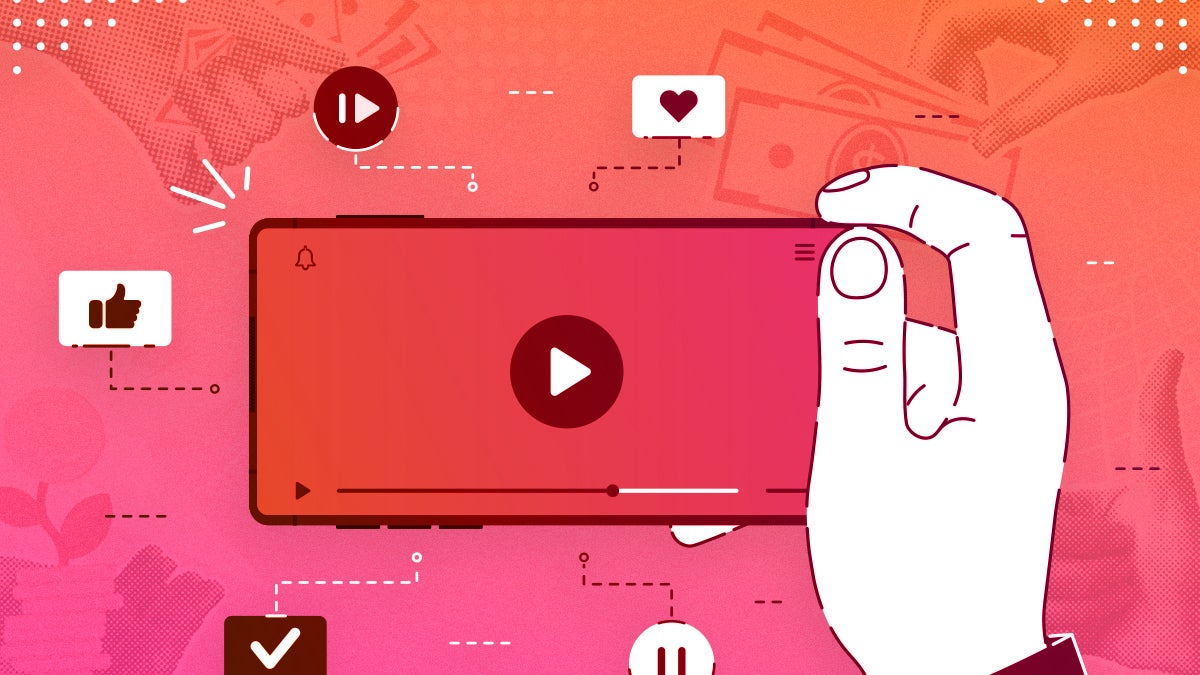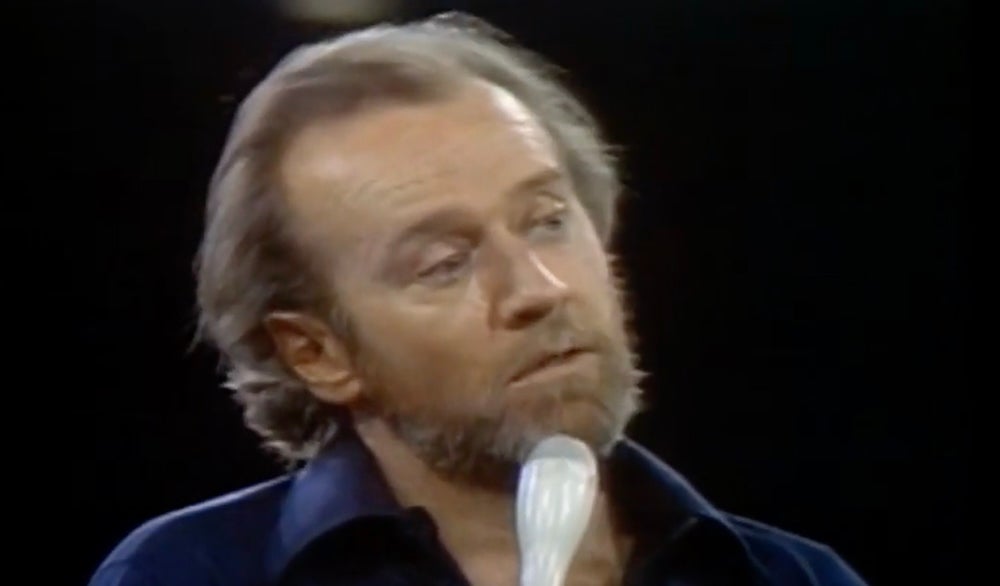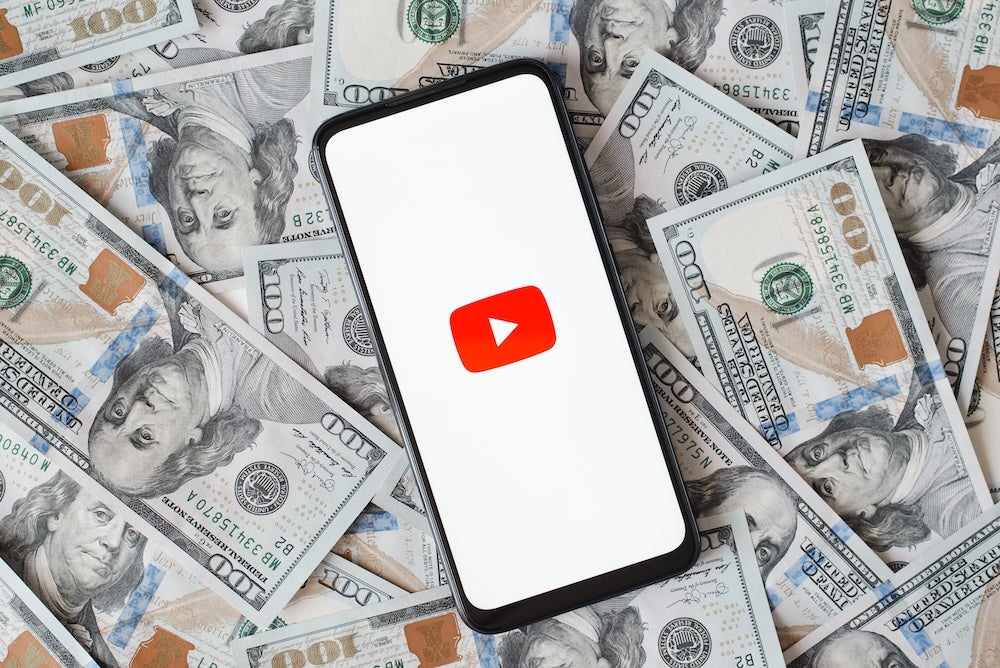
Plenty of video creators dream of making a living off their YouTube videos. These creators’ worst fears can be summed up in two words: YouTube demonetization. The term refers to YouTube barring individual videos or entire channels from making money from ad revenue or YouTube Premium viewers.
YouTube users have to follow the platform’s monetization policy in order to make money off of their videos. However, these policies can be confusing. Here’s how demonetization works and what you can do to avoid running afoul of YouTube.
What Are YouTube’s Rules for Monetization?
Anyone who wants to monetize their videos on YouTube has to follow all of YouTube’s policies. These include YouTube’s Community Guidelines, Terms of Service, and Copyright rules that apply to all users. Furthermore, monetized users have to follow AdSense’s program rules. The two main ones are:
- No repetitious content. The substance of each monetized video should be different. In other words, YouTube doesn’t want you to mass-produce low-effort videos for monetization.
- No reused content. That is, you can’t scrape other people’s work and present it as your own. Users should be able to tell the difference between the original material and your video.
In addition to the AdSense program rules, YouTube expects “creator integrity” and “creator responsibility.” The former means that you are who you say you are and don’t try to artificially inflate your channel’s engagement.
The latter refers to your behavior. YouTube says, “We don’t allow egregious behavior that has a large negative impact on the community.” Crucially, this applies both on and off the platform, as you’ll see in examples of demonetization below.
But that’s not all — YouTube also has content guidelines for ensuring that your videos are “advertiser-friendly.” What does that mean? Well, advertisers can be rather risk-averse.
For the most part, companies would rather not place ads next to content they find objectionable. YouTube has a whole lot of categories under this umbrella, including things like hateful content, violence, and sexuality.
Here is a short list of things that can get your channel demonetized for content or advertiser happiness reasons.
- Porn and Nudity
- Graphic Adult Content
- Gun Content
- Controversial Topics (even if they’re not graphically covered)
- Hate Speech
- Inappropriate Language
- Criminal Threats
- Videos of Actual Violence
Can You Be Demonetized For Cursing?

A common question here is around swearing — can you curse and still monetize your videos? The short answer is yes, but the long answer is “it depends.” According to YouTube’s content guidelines, the following is acceptable when it comes to swearing:
- Abbreviated or censored profanity in title, thumbnail, or video
- Moderate profanity (e.g. “bitch”, “douchebag”, “asshole” used frequently in video
- Most profanity used in music or stand-up comedy
As we move into more intense use of profanity, things get more complicated. YouTube says that videos with this sort of profanity may earn limited or no ad revenue:
- Stronger profanity (e.g. “fuck”) used in the first seven seconds of the video
- Moderate profanity (e.g. “shit”) in the title or thumbnail
- Profanity used in most spoken sentences
Finally, there’s a class of language that makes you completely ineligible for ad revenue:
- Stronger profanity (e.g. “fuck”) in thumbnails or titles
- Extreme profanity, including hateful language or slurs
Will YouTube Demonetize You For Violent or Sexual Content?
Similarly, policies about sexuality, violence, and “shocking content” are all complex, allowing for certain depictions but not others. If you’re monetizing with AdSense, you should familiarize yourself with the full details of YouTube’s Advertiser-friendly content guidelines. However, here are things to keep in mind.
What Violent Content Will YouTube Demonetize?
In general, videos focusing on blood, violence, or injury without any other context are not eligible for ad revenue. Context matters a great deal here. For example, violence in news reporting is usually fine, as is violence in video game footage.
However, things like montages of violent video games are not eligible for monetization. So, clips of you playing Mortal Kombat are fine — Fatality compilations aren’t.
What Sexual Content Will YouTube Demonetize?
Similarly to violent content, context matters for adult content on YouTube. You shouldn’t put “highly sexualized content” in the title or thumbnail of your video. Romance scenes that aren’t “sexually gratifying” and discussion of sex are ok. Anything that YouTube deems has the intent of being sexually arousing is not.
It doesn’t matter if you’re depicting real people or art here, and don’t try to pull the “it’s just a joke” excuse, either. YouTube is way ahead of you there. Saying you were just trying to be funny won’t get you ad revenue on obviously sexual content.
For all of you art historians out there, note that even depictions of “classical art” showing genitals may earn limited or no ad revenue.

What Forms Does YouTube’s Demonetization Take?
YouTube reviews channels from time to time to ensure that they are following the rules for monetization. If they find that you’re in violation of the monetization rules, they may take action against you. This could include:
- Withholding, adjusting, or charging back YouTube earnings
- Restricting or blocking ad revenue entirely
- Suspending your participation in the YouTube Partner Program
- Suspending or terminating your YouTube channel
Copyright Claims and YouTube Demonetization
One of the main reasons that individual videos on YouTube are demonetized is due to copyright claims.
For instance, if you use background music that you don’t own, YouTube’s Content ID system can flag it. The rights holders may then decide to monetize your video for themselves, meaning that they’ll be getting the money you otherwise would have.
This is why it’s important to familiarize yourself with all of YouTube’s policies. Even if you aren’t breaking the AdSense program rules, you could still have a video demonetized for breaking copyright infringement.
To avoid this, try not to use anything in your videos that you didn’t create yourself. If that’s not possible, use public domain or non-copyrighted material. If you have to include copyrighted work, you may be able to claim fair use. However, there’s always a risk the rights holder could file a copyright claim against your video.
For more information, check out our guide on navigating copyright on YouTube.
What Can You Do If You’re Demonetized on YouTube?
If one of your videos is demonetized on YouTube and you’re in the Partner Program, you should contact the Creator Support team. To do so, follow these steps:
Step 1) Sign in to your YouTube Channel.
Step 2) Click on your profile image and choose “Help and feedback.”
Step 3) Scroll down to the “Need more help?” item and select “Contact us.”
YouTube has gotten more and more aggressive about demonetizing videos after the “Adpocalypses” of the last few years. As a result, demonetization can feel arbitrary and unfair. Since demonetization relies on individual human reviews, some creators may seem to get away with particular kinds of behavior that others don’t.
Ultimately, however, if you want to make money from your YouTube videos, your best bet is to follow the platform’s rules. For better or worse, many creators find it easier to play it safe. That means bleeping out swear words, avoiding violent content — even in video games — and so forth.
Famous Cases of YouTube Demonetization
Demonetization became a big issue in the YouTube community in the late 2010s. Several prominent figures on the site have had videos or their entire channels demonetized since then. In some cases, these actions have later been reversed. Others remain demonetized to this day.
Logan Paul and the Suicide Forest
In 2018, Logan Paul’s channel had advertising temporarily suspended after he posted a video showing the body of a suicide victim in Japan’s “suicide forest.” Paul later apologized and removed the video, and YouTube restored advertising to his channel eighteen days later.
Steven Crowder Harms the Community
In 2019, YouTube demonetized right-wing commentator Steven Crowder’s YouTube channel for the repeated use of racist and homophobic slurs targeting Vox host Carlos Maza.
Initially, YouTube claimed that Crowder’s behavior did not violate its terms of service. However, the platform eventually relented and CEO Susan Wojcicki apologized.
A year later, YouTube remonetized Crowder’s channel, saying that he had addressed his behavior. However, after Crowder made false claims about the 2020 presidential election, YouTube once again demonetized him, this time indefinitely. In 2023, Crowder moved to the platform Rumble.
Shane Dawson Bully’s 11-Year-Old Willow Smith
In 2020, YouTube indefinitely demonetized Shane Dawson’s YouTube channel after Jaden Smith accused Dawson of sexualizing his sister Willow Smith. In an older video, Dawson pretended to masturbate while looking at a poster of Willow. She was 11 years old at the time of the video’s production.
Onison Gets Banned For Child Safety
In 2021, YouTuber Onision (Gregory James Jackson) had his channels suspended from the Partner Program, effectively demonetizing them indefinitely.
His ban was for “off-platform behavior relating to child safety.” YouTube didn’t name a specific incident in this case, but several women had previously accused him of abuse, most of whom were minors at the time that Onision had pursued them.
David Dobrik Gets Demonetized for Vlog Squad Sexual Assault Allegations
Also, in 2021, YouTube temporarily demonetized David Dobrik’s channel after a Business Insider article reported that one of his colleagues in the Vlog Squad allegedly raped a woman during the filming of a video by the group. It’s unclear how long the demonetization lasted.




